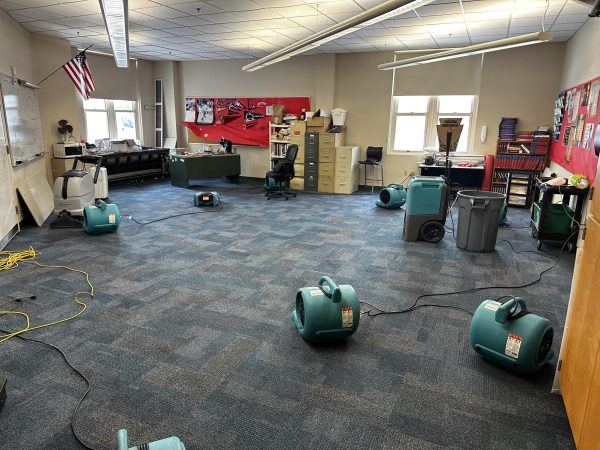A Life Without Homework
November 22, 2016

How many times have you heard someone complain about homework? Whether it was someone else or yourself, we’ve all heard it. Homework is an old tradition where teachers assign work for students to complete in addition to the assigned classwork. This tradition has long been accepted by both students who are doing the homework and the teachers that are assigning the homework as the norm. However, is it really beneficial?
This debate over homework has recently been increasing. It is proven that homework provides many benefits for students’ learning. As previously mentioned the concept of distributing homework has been around for many generations. It provides a way to practice the material that had been taught that day in class. Another argument in favor of homework is that there may be wiggle room in high school but there certainly isn’t in college and students wouldn’t be prepared for college without homework.
On the other end of the spectrum, many schools are even implementing a ¨no-homework policy.” Most of these schools include elementary schools because it is not felt that homework provides much benefit at an age that young. However, The Kelly Full Community School is a high school that has made a no-homework policy. This school includes many poor and low performing students so a no-homework policy provides a more enthusiastic view from the students. Higher test scores have been observed as well as lower incidents at school. However these aren’t only low performance school that have found benefits in not giving homework. Multiple high performing high schools have implemented a longer school day where they do the extra work during school time. These schools are more success stories about schools with no-homework policies.
So since these no-homework policies seem to work, why don’t we have one at Ipswich High School. This is the exact question that senior Kilian Morrissey is asking. He argues that homework should not be given at this school. First of all, Morrissey points out that, “It is usually just busy work” and “doesn’t offer any benefits.” He goes on to say that homework is making him “not like school” and if there was no homework he would be eager to learn each morning. When asked how school would prepare us for college without homework, he said that it still would because you would have to study for tests and complete large projects at home. Morrissey seems to be a good representation of what the student body at Ipswich thinks about homework.
However, there is more to it. Spanish teacher Nicole Marotta thinks exactly opposite of Morrissey. Although she may consider not giving very young students homework, she feels that it is essential to a high school education. Marotta claims, “It supports what we learned in class that day.” Another argument she provided was that it is a huge time saver, saying, “We don’t need to spend as much time on the topics in class because they are practicing out of class.” And of course, she referred to one of the most significant arguments in her favor: college. She says that one of high school’s main purposes is to prepare you for college and we would be failing to do this without homework.
It is clear that this debate is very controversial. Most students tend to not want homework because they are the ones doing it while teachers are in favor of homework because they are the ones teaching the students. The trends seem to indicate that the only time where a no-homework policy may work is in low performing high schools. But there have been high performing high schools that have made it work. How would a no-homework policy work in Ipswich High School? We won’t know until we try.





